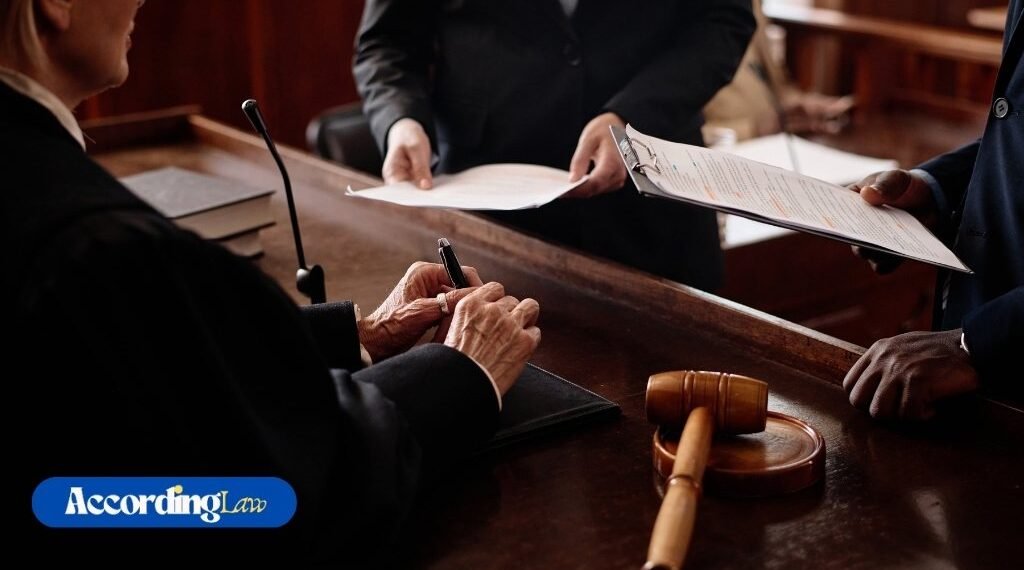When one is charged with a crime, the risk can be daunting. The penalty of a conviction—loss of liberty, tarnished reputation, and long-term restriction, extends far beyond the courtroom. Amid the anxiety of arrest and prosecution, a defendant may find it difficult to comprehend their rights, navigate complex legal processes, and deal with a system that can be harsh. A defense lawyer steps into this room not merely as an advocate for the law, but as a bulwark against disproportion and unfairness.
Their mandate goes beyond the technicality of arguing law; it is to defend procedural justice, make the law transparent, and hold the prosecution accountable. They start at the point of accusation and frequently go beyond the trial to do it. From negotiating plea deals to submitting motions to preparing the defendant for courtroom appearances, the defense attorney is both a strategic planner and the key protector of the justice system.
Table of Contents
Why does every defense begin with the presumption of innocence?
The legal maxim that an individual is innocent until proven guilty is a pillar of democratic justice. In practice, however, public opinion tends to tip toward guilt from an arrest or charge. Media reports, police statements, and even the mechanisms of courts may insidiously reinforce the narrative that the accused has to establish his innocence. A solid defense starts by reaffirming this assumption, making sure that all the evidence is scrutinized and procedural fairness is maintained. Defense lawyers challenge preconceptions, question police tactics, and try to see what could have been missed or misread. Cases are not so easily solved. Eyewitnesses can be wrong, confessions are sometimes coerced, and forensic evidence is not always definitive. It is in this environment that a criminal defense attorney finds their ground, asking not if a person is likable or suspicious, but whether the state has fulfilled its burden of proof according to the law.
The balance between defense strategy and client story
No two crime cases are the same, and neither are the people charged. Any defense strategy has to take into consideration the personal, psychological, and situational conditions that created the event. The attorney’s job is to construct an explanation of how the behavior occurred in a manner understandable to the court. This requires reading discovery material, interviewing witnesses, dissecting surveillance video, and consulting an expert when necessary. In the center of the process is the voice of the client.
A good defense is not merely founded on rules and facts, but also on listening to the client’s voice and knowing why a person has been arrested or was in an altercation , which gives lawyers how to craft their defense so that it humanizes the person. This narrative can occur before a jury, in a written motion, or in the negotiations that form a plea bargain. The idea is to make sure the individual behind the charges is not boiled down to a case number but presented as a complete human being with history and a future to be saved.
Facing the pressures of prosecution and public opinion
Prosecutions for crimes can be a public spectacle, particularly in high-profile or emotionally charged cases. An accused party is often under pressure not only from prosecutors, but also from the media, community, and even friends or family. Defense lawyers act as a buffer during these times, shielding the accused from inappropriate pressure while keeping their sights firmly on the legal process. This entails resisting when the state encroaches, whether in the form of excessive bail, pretrial publicity, or efforts to present unreliable evidence.
Lawyers need to stay sharp under duress, leading clients with steady determination despite emotional turmoil. Negotiations with the prosecution can , in most situations, bring about decreased charges or alternatives to incarceration, but such results need meticulous preparation and effective communication. Though public opinion is quick to act, legal results are based on facts, strategy, and law. The job of the defense attorney is to remain focused on those principles, regardless of how loud the outside voices get.
The unseen work that shapes courtroom outcomes
Much of a defense lawyer’s work occurs outside the courtroom. The preparation phase is spent hours reviewing case files, conducting legal research, writing motions, and responding. Every choice—whether to suppress evidence, call one witness versus another, or seek dismissal—is constructing the framework of the case. Pretrial hearings, discovery deadlines, and plea negotiations require precision and ongoing planning.
Defense lawyers also have to advise their clients through difficult choices, such as whether to testify, take a plea, or go to trial. These discussions need legal acumen as well as emotional sensitivity since the accused is likely to be making the most important decisions of their lives. Defense also entails long-term ramifications: how an admonishment might affect future job prospects, housing, or immigration status.
Working through these issues ahead of time is part of the lawyer’s obligation to serve beyond the immediate case. When a case eventually makes it to court, it is the culmination of hundreds of decisions made along the way, decisions that determine everything from jury composition to closing arguments.
Defending the integrity of the justice system
Aside from acting as advocates for individual clients, criminal defense attorneys serve a greater purpose by upholding the integrity of the justice system. They provide a check against excess, expose abuse, and compel the state to function within lawful parameters. When prosecutors bend rules or police cross the line, it is the defense that reveals these abuses. In this way, lawyers not only protect their clients but also ensure that cases in the future are conducted justly. Their watchfulness guards against innocent conviction, arbitrary sentencing, and undermining of civil liberties. They remind courts that justice is not a given but must be enforced by incessant inquiry and accountability.
A vigorous defense is not something that hinders law enforcement, but one that balances the equation. It sustains the notion that courts are arenas of equity, not predestinations. Defense lawyers frequently have large caseloads and experience public confusion regarding their work, yet their function is instrumental in safeguarding that laws are not only enforced, but also upheld.
To be accused of a crime can change one’s life overnight. It introduces uncertainty, anxiety, and the threat of long-term repercussions. A criminal defense lawyer presents himself in that moment not only to advocate in court, but to protect rights, offer guidance, and seek justice with dedication. His job is multifaceted, challenging, and poorly understood, but without it, the justice system would become unbalanced.
Each case they take becomes a pronouncement that fairness is not an entitlement, but a principle. Their advocacy maintains more than one client’s interests; it maintains the very principle that justice has to be earned through process, not seized by power. For anyone that is charged with a crime, the presence of counsel is more than just a legal necessity, it is a move toward making the law continue to be just, accountable, and deserving of faith.


